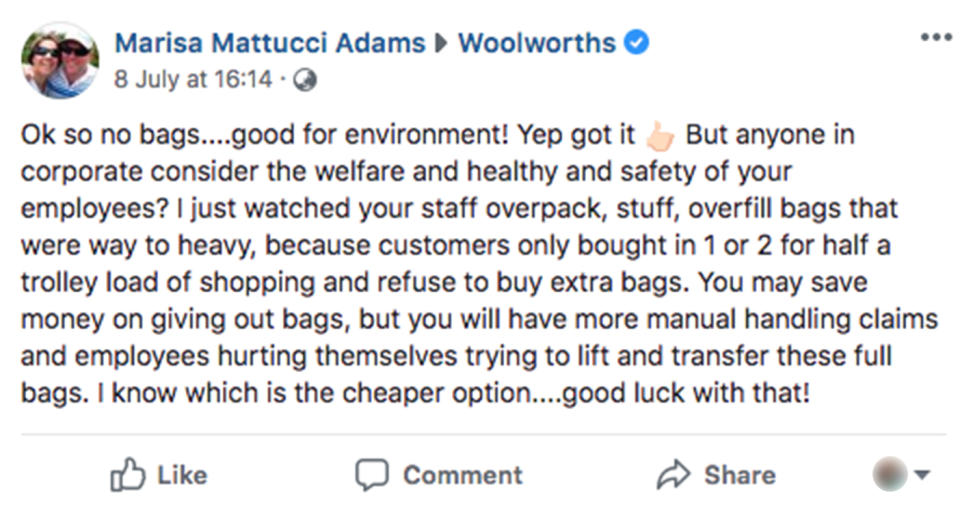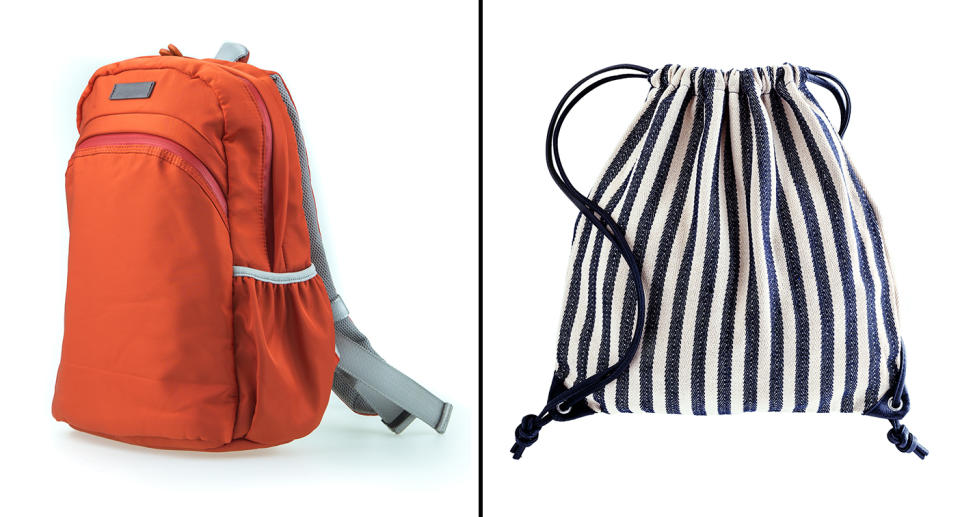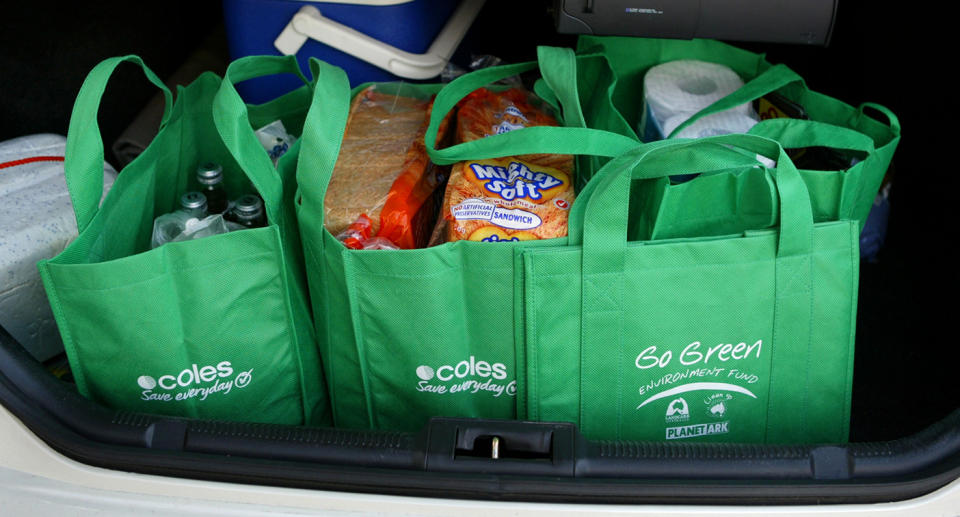How to avoid injuries from 'overfilled' reusable shopping bags
In the wake of the supermarket plastic bag ban, customers are raising concerns about shoulder injuries after carrying reusable bags “overfilled” with heavier shopping.
Shoppers across the country have complained about supermarket checkout staff loading up the larger, sturdier bags simply because they can fit more in, making them heavy to carry and putting customers at risk of hurting themselves.

Coles customer Angie Dutta-Lancaster took to Facebook to voice her concerns.
“I understand you made the bags bigger so not so many are used, but this puts customers in a position of unnecessary risk of injury due to excess weight,” she wrote on the Coles Facebook page.
After speaking with Coles, Ms Dutta-Lancaster said an employee suggested customers help the cashiers as they adjust to packing reusable bags.
“They also need feedback because it’s new to them as well,” she said a Coles representative told her.
Another Coles customer reported a cashier filling a single bag with four 220g tins of spaghetti, a litre of UHT milk, a jar of pasta sauce and a bottle of fruit juice.

“I brought my own bags and the attendant put all these heavy items in the 1 bag even though I asked her not to overfill them,” Paul Jayne said.
“That is way too heavy to carry in 1 hand, let alone how much the bag could stand.”
A Melbourne shopper also raised health and safety concerns about cashiers potentially hurting themselves trying to lift and transfer these overfilled bags.
“I just watched your staff overpack, stuff, overfill bags that were way too heavy, because customers only bought in 1 or 2 for half a trolley load of shopping and refuse to buy extra bags,” Marisa Mattucci Adams wrote on the Woolworths Facebook page.
Yahoo7 News has contacted Coles and Woolworths for comment on the matter.
But the Australian Physiotherapy Association (APA) said injuries from carrying too many groceries were not a new occurrence and the move away from smaller plastic bags was a step to helping minimise harm.

Physiotherapist David Hall, who is chair of the Occupational Health Group and a member of the APA, said people straining their hands, wrists and shoulders carrying heavy bags was not a new mechanism of injury.
“The old [single-use] shopping bags, people used to carry quite a few at a time,” he said.
“Hands are not really designed to hold those loads for long periods.”
Speaking with Yahoo7, Mr Hall said while the move to ban plastic shopping bags was a positive one for the environment, it would also have increased health benefits for Australians.
He said the key to minimising injury was not filling bags too much, and keeping loads close to the body by opting for backpacks and string shoulder bags rather than “green” carry bags.

Those options will engage the body’s larger muscles and core strength, rather than the small ligaments in hands and shoulders, the physio said.
“Not pushing shopping too far in the back of the boot,” he suggested.
“Keep them close to the end of the boot.
Mr Hall’s other suggestion was “handling bags at bench height rather than bending over and reaching will avoid low back pain and shoulder injury”.
He also recommended avoiding baskets and opting for a trolley instead.
As Australians adjust to new shopping behaviours, Mr Hall advised shoppers to be better prepared, and leave some backpacks and string bags in the car in case of unexpected trips while on the run.


